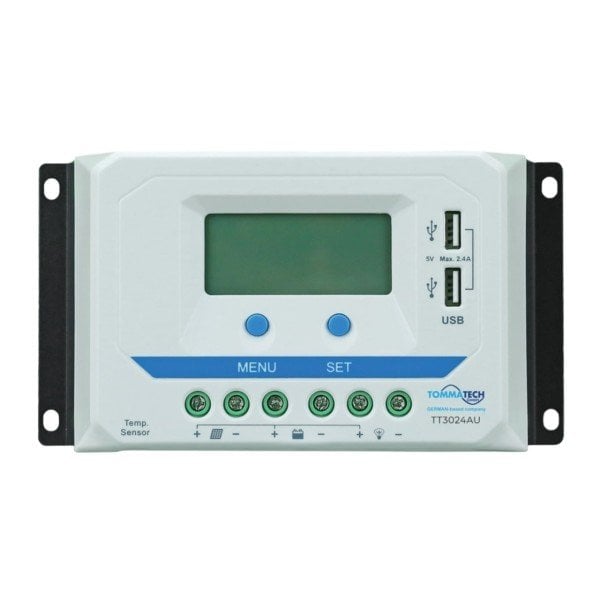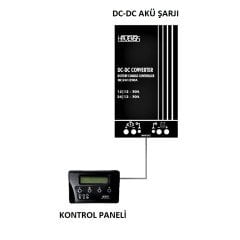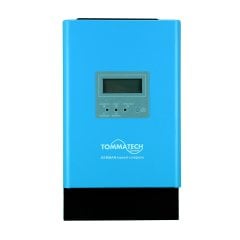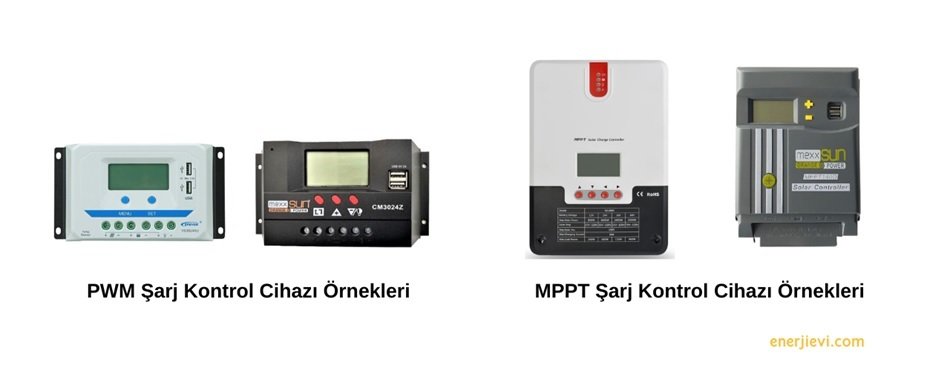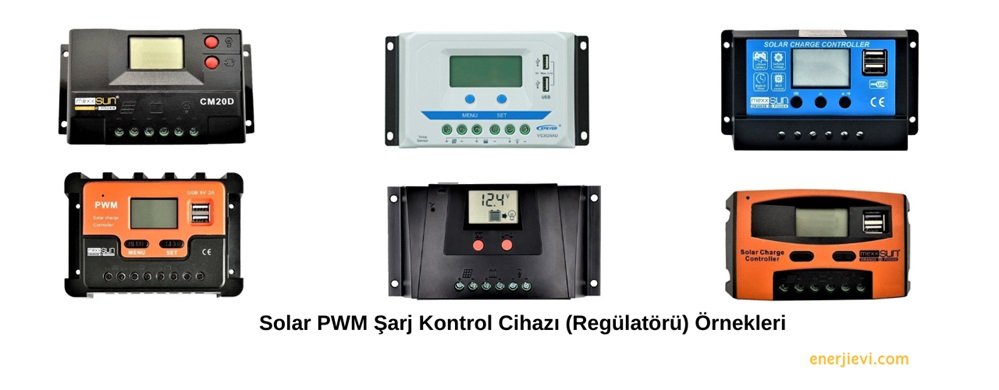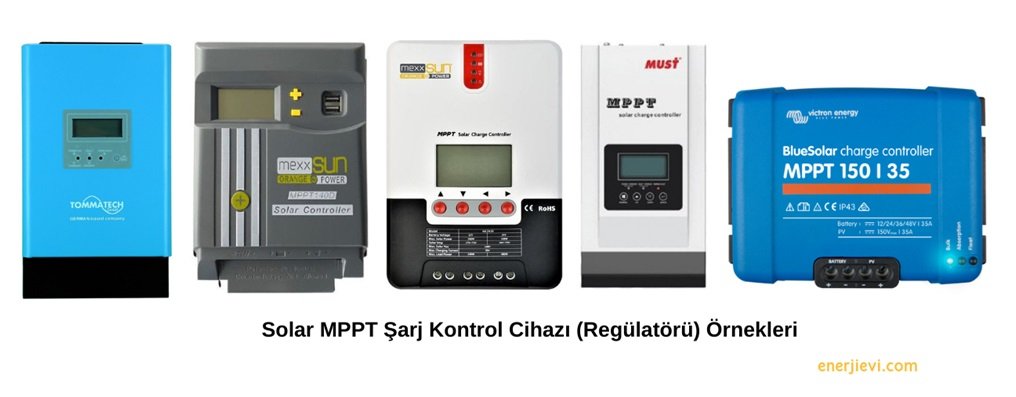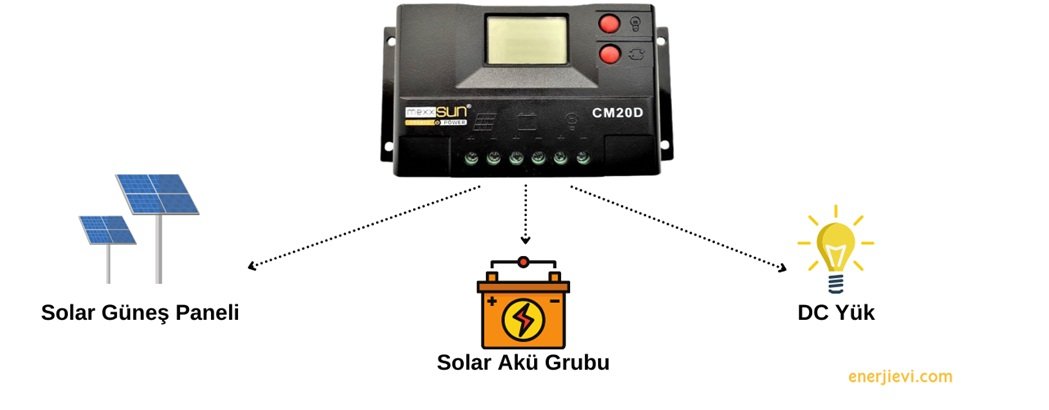FILTER
SORT
General Information About Charge Controller
Regulator simply means regulator. The charge controller prevents overcharging of the battery by "regulating" (balancing/managing) the current and voltage (voltage) from the solar panels.
What is Solar Charge Controller?
In the solar power generation system, the solar charge controller regulates the current and voltage values from the solar panels. Solar charge controllers are also known as solar charge controllers in the market. It is also used and known in the market as a solar battery charger.
The solar charge controller regulates the energy power obtained from the solar panels and going to the solar battery. In our system, charge controllers prevent solar batteries from being damaged by high voltage or overcharging.
What is the Role of the Solar Charge Controller (Regulator)? What Does It Do?
Solar batteries have a certain voltage range. The main tasks of charge regulators are not to damage the system and to work regularly. These are to ensure that the battery is charged with a constant voltage and to cut the charging current when the battery's full capacity voltage value is reached.
- Key Features of Solar Charge Controller
- It keeps the charge level of the solar battery group balanced and ensures that the batteries work more healthily.
- It has reverse current protection. When there is no energy from the solar panels, it prevents the solar batteries from giving energy to the solar panel.
- When the battery voltage drops, it turns off the power to the load. Turns on power when solar batteries are charged.
- It shows the battery voltage and solar panel current according to the charge control type.
What are the Charge Controller Types (Types)?
Charge controllers for the generation of electricity from solar energy are divided into two according to their intended use. Solar charge controllers are PWM (Pulse Width Modulation) and MPPT (Maximum Power Point Tracker).
What is PWM Solar Charge Controller? How does it work? Where is PWM Used?
The PWM-capable charge controller provides the connection between the solar panels and the solar battery by sending short charging pulses to the batteries. The PWM solar charge controller protects the batteries from high voltage by reducing the nominal voltage from the solar panels to the battery voltage. It cuts the current when the full battery voltage value is reached.
Note: If the voltage from the solar energy is below the battery voltage, the solar batteries will not be charged.
Why Prefer PWM Charge Controller?
The PWM solar charge controller is the most widely used charge controller type in the solar energy systems market, as it is inexpensive. It is used in small systems in off grid applications. In larger systems, the MPPT charge controller is generally preferred.
What is MPPT Solar Charge Controller? How does it work? Where is MPPT Used?
The main tasks of the charge controllers are to ensure that the battery is not damaged in the system and that it works regularly. These are to ensure that the battery is charged with a constant voltage and to cut the charging current when the battery's full capacity voltage value is reached. The MPPT solar charge controller lowers the high voltage from the solar panels and increases the current. It allows more power to be used from solar panels. It allows the batteries to be charged in a shorter time.
MPPT charge controller is more expensive than PWM chargers. However, they are much more efficient devices when cost analysis is considered for maximum benefit.
Note: Its use in caravans and boats is increasing over time. We recommend that you choose to make maximum use of the sun, to fill your batteries in a shorter time and to experience less trouble in the winter months.
Note: Smart Inverters have a charge controller inside. We recommend you to use it externally, even if it is inside.
Note: You can also choose an Inverter with MPPT in order not to tire your batteries and to use the MPPT feature.
Why Choose MPPT Charge Controller?
The solar energy systems of the MPPT solar charge controller are a type of charge controller that works more efficiently. You can use it comfortably in off grid applications, caravan and boat systems. It should definitely be used in electricity generation systems from solar energy, which are used in winter and where there is shading.
How to Select a Charge Controller (Regulator)?
Choosing a solar charge controller / regulator is the question that confuses us the most. How many panels you use, the production voltage and current values of the panels affect your choice. However, the connection types of your solar panels are also important. It should be noted that the solar controller with PWM or MPPT that you will use in your system assumes the role of fuse.
Small or large solar regulators in your system can cause serious hazards. Comparison and Differences of Solar Battery Chargers are made below. Learning the differences of PWM or MPPT charge controller device will make your choices easier.
In short, the choice of charge controller;
- Solar Panel Power,
- Number of Solar Panels,
- Battery Voltage and Number of Battery
- It is made according to Battery Type and Battery Type.
Comparison of Solar Battery Chargers and What are the Differences?
- PWM chargers are more economical than MPPT chargers.
- PWM charge controllers charge solar batteries by sending short pulses. MPPT charge controllers, on the other hand, provide appropriate charging by changing the voltage/current values coming from the solar panel.
- MPPT charge controllers enable the solar power generation system to operate more efficiently.
- With MPPT solar chargers, solar battery groups provide charging in a shorter time.
- You can use the PWM charge controller in small off grid solar energy systems (such as lighting). However, we recommend using a solar charge controller with MPPT in larger off grid solar energy systems.
What are Solar Condition Controller (Regulator) Brands? Where can you get it?
We write some of the amperage types of solar controllers available on the market for you. You can find 10A, 20A, 30A, 40A, 50A, 60A variants of PWM Solar Charge Controllers in the market.
You can find 10A, 20A, 30A, 40A, 60A, 80A, 100A variants of MPPT Solar Charge Controllers in the market.
You can obtain charge controllers from many brands in the solar market.
- Mexxsun charge controller (charge controller),
- Tommatech charge controller (charge regulator),
- Juta charge controller (charge controller),
- Max charge controller (charge regulator),
- Linetech charge controller (charge regulator),
- Savior charge controller (charge regulator),
- Lexron charge controller (charge controller),
- Victron charge controller (charge regulator),
- Brands such as Must charge controller (charge regulator) are available.
Why Use a Charge Controller?
For the safe operation of solar power generation systems, a solar charge controller must be used in the system. Solar panels in average standards produce voltage values of 12 or 24 Volts. However, the average open circuit voltages of these panels are in the range of 18V – 31V. The reason for this difference is that solar panels show production differences in cloudy weather and high temperature. For similar reasons, changes in system voltages can be observed.
In short; Solar panels produce excess voltage (voltage). If this voltage (voltage) directly feeds the batteries, it reduces the battery life. Worse still, it creates a risk of fire and explosion. In order to minimize these risks, it is absolutely necessary to use a charge controller. Even if we assume that the batteries are supplied with a constant voltage, interrupting the charging current when the batteries are full is a very important detail in terms of battery safety and life. In addition, during the hours when there is no sunlight, the solar panel can discharge the batteries by converting the stored energy into heat energy. In this risk, charge controllers prevent the current by passing it on one side.
How to Connect Solar Charge Controller to Solar Electricity Generation System? How to Adjust Solar Charge Controller Battery Settings?
We recommend that you obtain information about the device you purchased before connecting the solar charge controller. We recommend that you follow the rules in system installations. What you see in the figure is the PWM charge controller. At the bottom of the device, there are 6 ports: Panel +-, Battery +- and DC loads +- connections.
When connecting a solar charge controller to the solar power generation system, the first basic line to know is that the battery group must first be connected to the solar charge controller. When we connect the battery group to the device, it will recognize the system voltage. When you make the panel connections, the system installation will be completed. In short; First, the solar battery group is installed. Then the solar panel group will be connected to the system. The installation sequence must be strictly followed.
Note: All panels are connected in series when connecting to the MPPT solar charge controller (regulator).
Note: The solar battery pack is the most expensive part of the solar power system. Solar charge controllers protect batteries from both overcharging and overdischarging. Solar charge controller increases the lifetime of the batteries.
Note: Complete discharge of the battery will shorten its life. The charge control circuit provides load control and cuts off the energy to the load and protects the batteries from over-discharge.
Note: Overcharging the battery can cause serious damage. Overcharging lead-acid batteries boils the liquid inside, causing excessive gas formation. This can cause damage to the battery plates, swelling or explosion of the battery.
What are PWM Solar Charge Controller (Regulator) Prices?
The basis of PWM Solar Charge Controller (Regulator) prices is determined by the capacity (ampere), quality and brand of the charge controller.
What are MPPT Solar Charge Controller (Regulator) Prices?
The basis of MPPT Solar Charge Controller (Regulator) prices is determined by the capacity (ampere), quality and brand of the charge controller.
You can review the prices of solar charge controllers of various brands and capacities on our Enerjievi site. You can contact our expert team for any questions you may have in your solar charge controller selection. You can reach us at '05396789332'.

